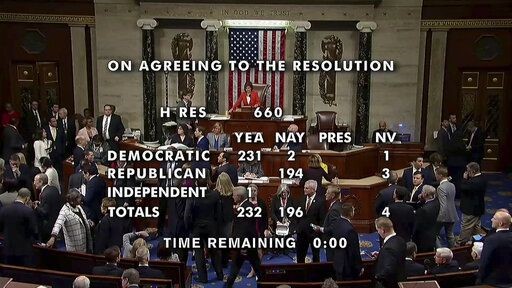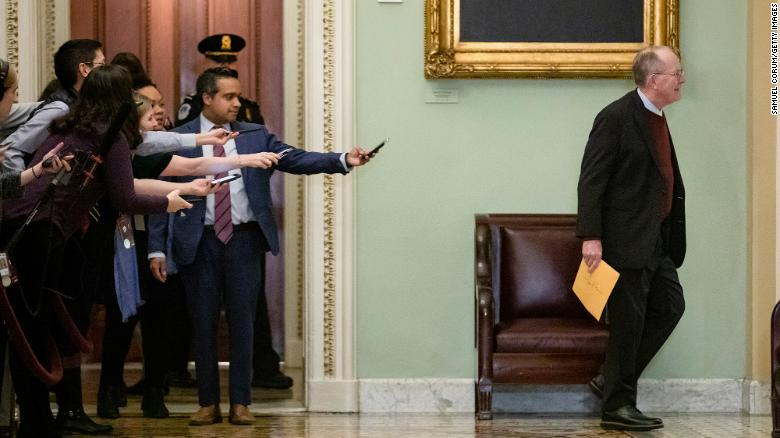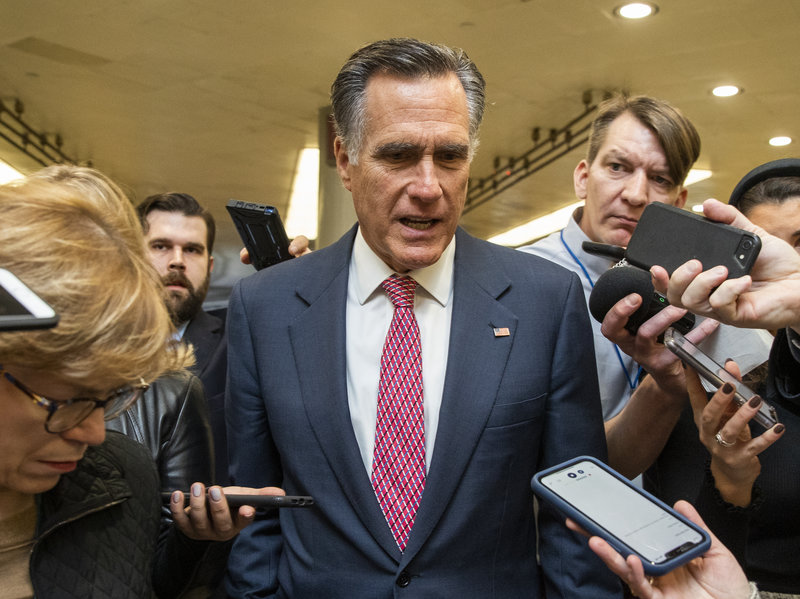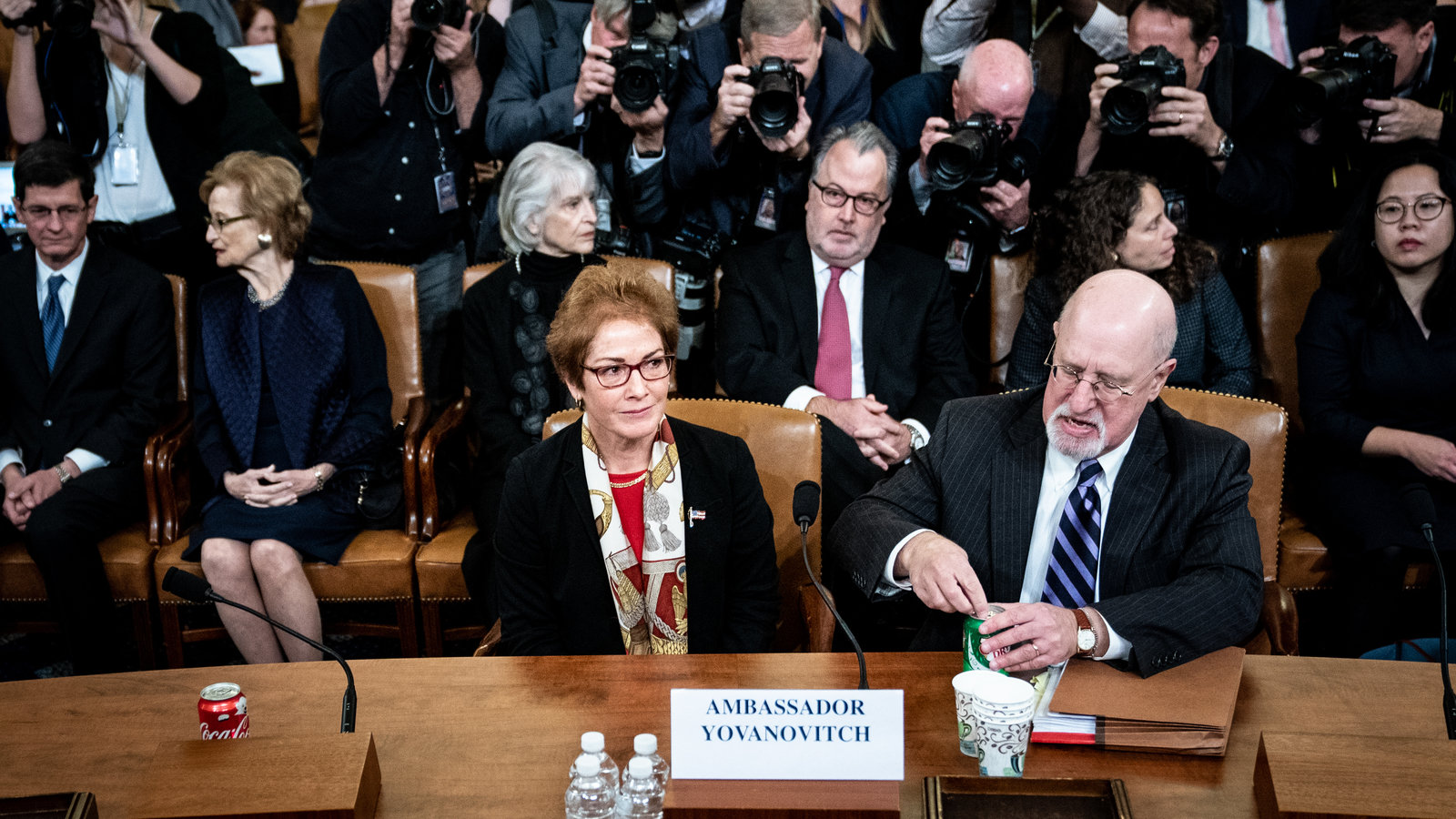Impeachment Trials: Checks and Balances Failing its Purpose
Being the fourth sitting president to be impeached, Donald Trump’s presidency was put into serious question for what he had done while sitting in office. Has the system that is meant to keep leaders of America in check become ineffective?
Donald Trump, the 45th President of the United States, has had his fair share of controversies and bad headlines since he ran for office, but as allegations arose on September 22th, President Trump was thrown in deep waters. In a press conference held by Speaker of the House Nancy Pelosi, she informed the press of a whistleblower complaint, which was filed to the House Judiciary Committee, claiming that the Trump Administration had reached out to the Ukrainian government to meddle in the 2020 Elections.
In the United States government, whistleblower complaints are few, but not uncommon to see. Whistleblowers are put under immense pressure due to the fact that the information that they put forth are classified. This means that sharing this information is subject to prosecution under the Espionage Act. The classified information that was released was a phone call between President Trump and the Ukrainian Prime Minister Vladimir Zeleskiy on July 25th, discussing the deployment of the United State’s aid package to support the Ukrainian Army against the Russians. In the call, President Trump said that he would give the aid package if he got something in return: Information of Former Vice President Joe Biden’s Son Hunter Biden. This not only was a serious crime because he was asking a foreign government to investigate a United States citizen, but because it was believed to have been done in the efforts to defame Joe Biden for his chances in running for president for the Democratic Party.
As the impeachment inquiries went through the Judiciary Committee and into the Intelligence Committee, the moment media all waited for arrived. An intense month and a half of testimonies were set for the months of October and November 2019. Subpoenas were sent, and over 17 people came before the Intelligence committee to testify or be privately interviewed. Former Ukraine Ambassador Marie Yovanovitch was one of the key testimonies given her service in the region, but also because of her experiences with the cruelty and harsh conditions she endured under the Trump Administration. She was the face of a “smear” campaign set forth by Rudy Giuliani, Trump’s personal Lawyer. She testified on November 16th, saying that she felt “terrible, honestly. After 33 years of service to our country it was terrible. It’s not the way I wanted my career to end.” Fiona Hill, the former National Security Advisor for the Europe and Russia Desk had a closed door deposition with the Intelligence Committee, saying that the then-National Security Advisor John Bolton had told her “…go tell Eisenberg that I am not a part of whatever drug Sondland and Mulvaney are cooking up.” John Bolton later said to Fiona Hill that “Rudy Giuliani is a hand grenade that is going to blow everybody up.”

Photo from the House TV showing the votes casted on both articles of impeachment Courtesy
of House TV via the Associated Press
More testimonies were heard, and by December 18th, Donald Trump was impeached on two articles of impeachment: Article I “Abuse of Power” and Article II “Obstruction of Congress”. Not long in February, Trump was acquitted by the Senate without surprise.
When the constitution of the United States was created, it was made with the intentions that no part of government held more power than the others. Impeachment was used for officials to keep checks and balances on the President or any other sitting judge. The flaw that made this effective tool ineffective was the way it would work. It gave the sole power of impeachment to the House of Representatives, a group of elected politicians. A group two political groups who deeply dislike each other’s positions would be the ones who choose whether to impeach an official with high executive or judicial power. If you haven’t found the problem with this, then you were like the Founding Fathers of America.
From the three times a president was impeached by the House, they were only done so when the House’s Party Majority found the president, who was from the opposite political party. Donald Trump was impeached because he was abusing his power as president, but also because his administration ignored court subpoenas. The House was a Democrat majority and were able to vote with the simple majority rule to impeach him. The problem starts to arise when the trial came to the Senate. The Senate was controlled by a Republican majority, the same party as President Trump. The Republican Senators were put into a test of loyalty to the party; to vote along party lines or to vote against and risk losing their seat in the next election. Time and time again, Senators had voted along party lines and not in remembrance of what the president was impeached for. It has become a broken process that shows the ineffectiveness a political party’s interest can do to the upholding of the constitution they were obligated to uphold. Many Republican Senators, such as Senator Lamar Alexander (R-Texas), said that “We all learn lessons as we go through life…Presidents make mistakes. Senators make mistakes. And hopefully we learn from those things.” Senator Joni Ernst (R-Iowa) agreed with the statement made by Senator Alexander, and so did Senator Susan Collins (R-Maine).

Senator Lamar Alexander (R-Texas) making his way to his chambers after reporters ask him of how he will cast his vote Courtesy of CNN
Though hope is on the horizon for what could be a “lesson learned” for Republicans and Democrats alike for the next, God forbid, impeachment trial. Senator Collins recalled her statement about Trump learning his lesson after she casted her vote to acquit him. She was said to have had little faith in her statement, and believed that President Trump would have been seen making these mistakes again. Senator Mitt Romney (R-Utah) made history as the first senator to vote against party lines, and created the first bi-partisan vote on an article of impeachment. His fearless vote showed constituents that upholding their oath of representing the constitution was their upmost priority, even at the cost of their election.

Senator Mitt Romney (R-Utah) ambushed by reporters after his vote to convict President Trump of one article of impeachment Courtesy of the Associated Press
The impeachment process of President Trump was both a disappoint and a silver-lining to both parties. Even if the Democrats failed to convict him in the Senate, the Republicans failed to keep unity in the voting process of the convictions.
Editors Note: The Impeachment trial was a very long and detailed topic that has many moving parts to it. Therefore, I have chosen not to go into the Senate’s trial for Donald Trump due to the dull arguments presented in the case and how inefficient the trial was. The article later argues why it was. If you would like to know what happened during the Senate’s trial, you should look up CNN’s coverage of it.
Featured Image—Former Ambassador to Ukraine Marie Yovanovitch awaiting the committee to commence Courtesy of the Associated Press
by Samuela Ma’u

